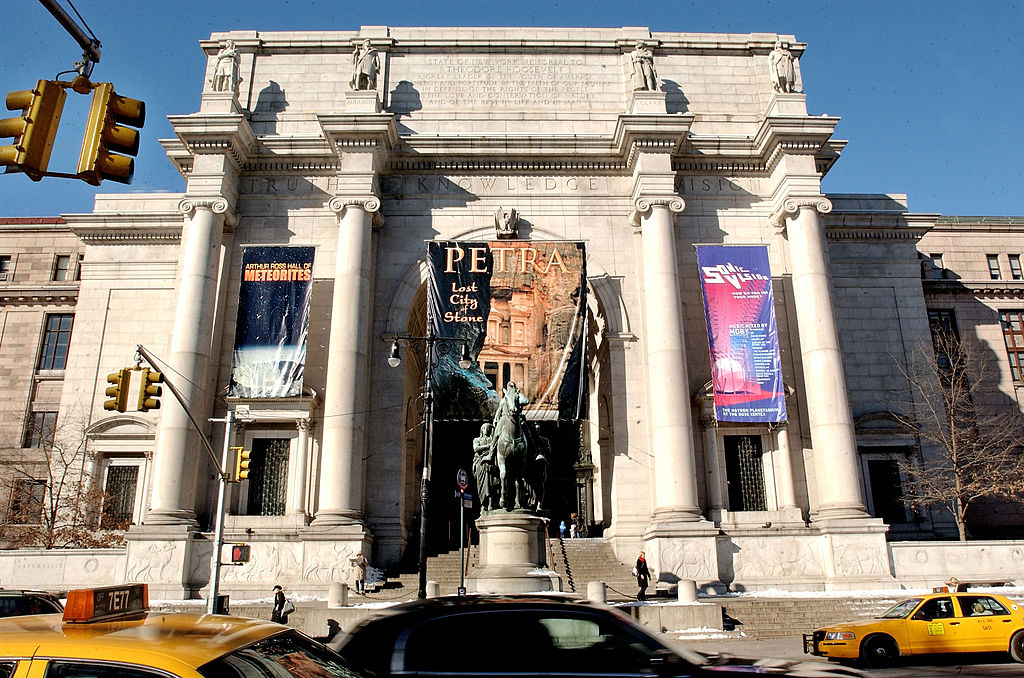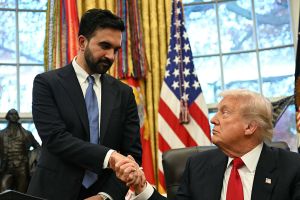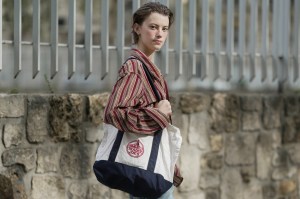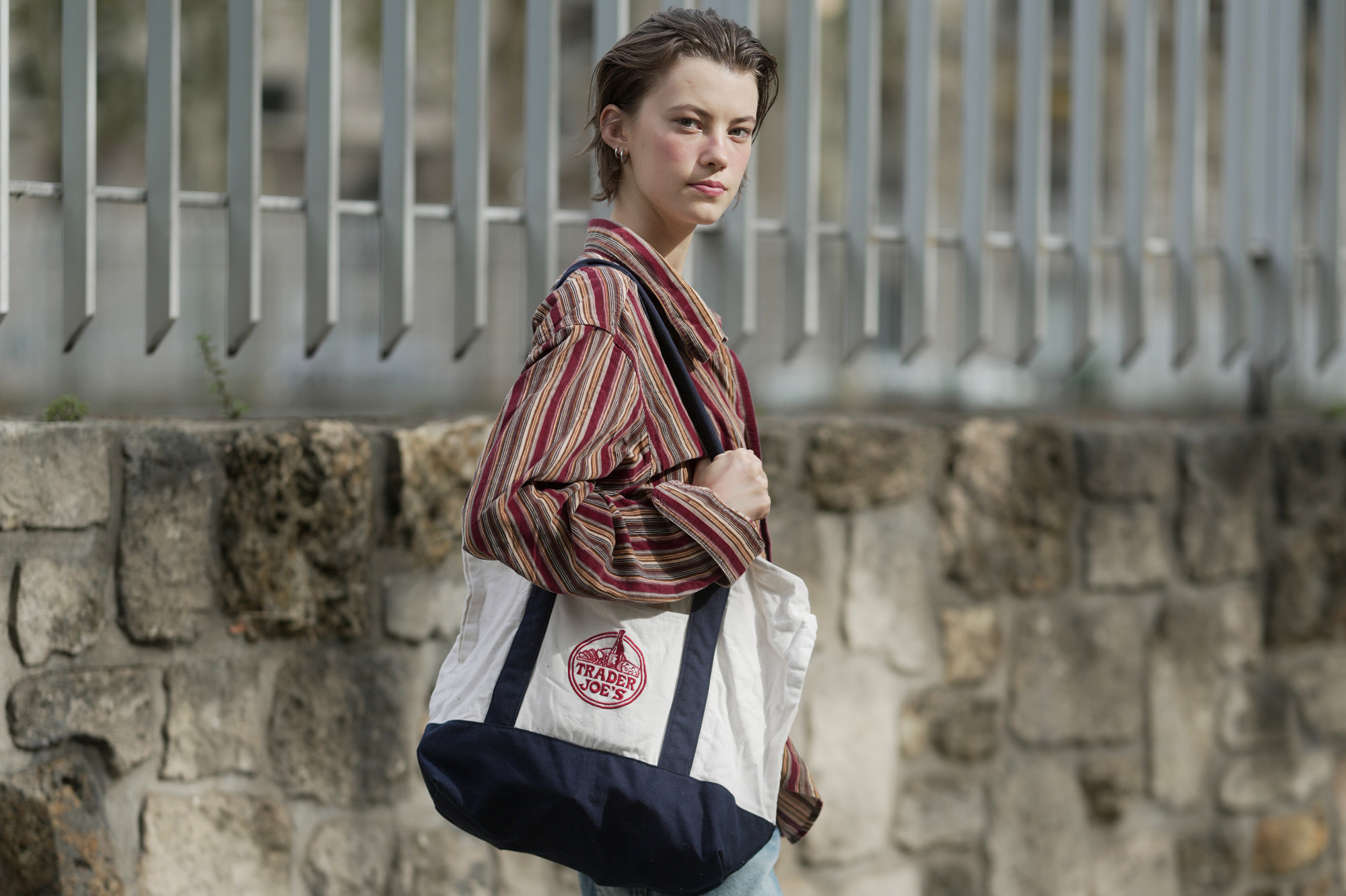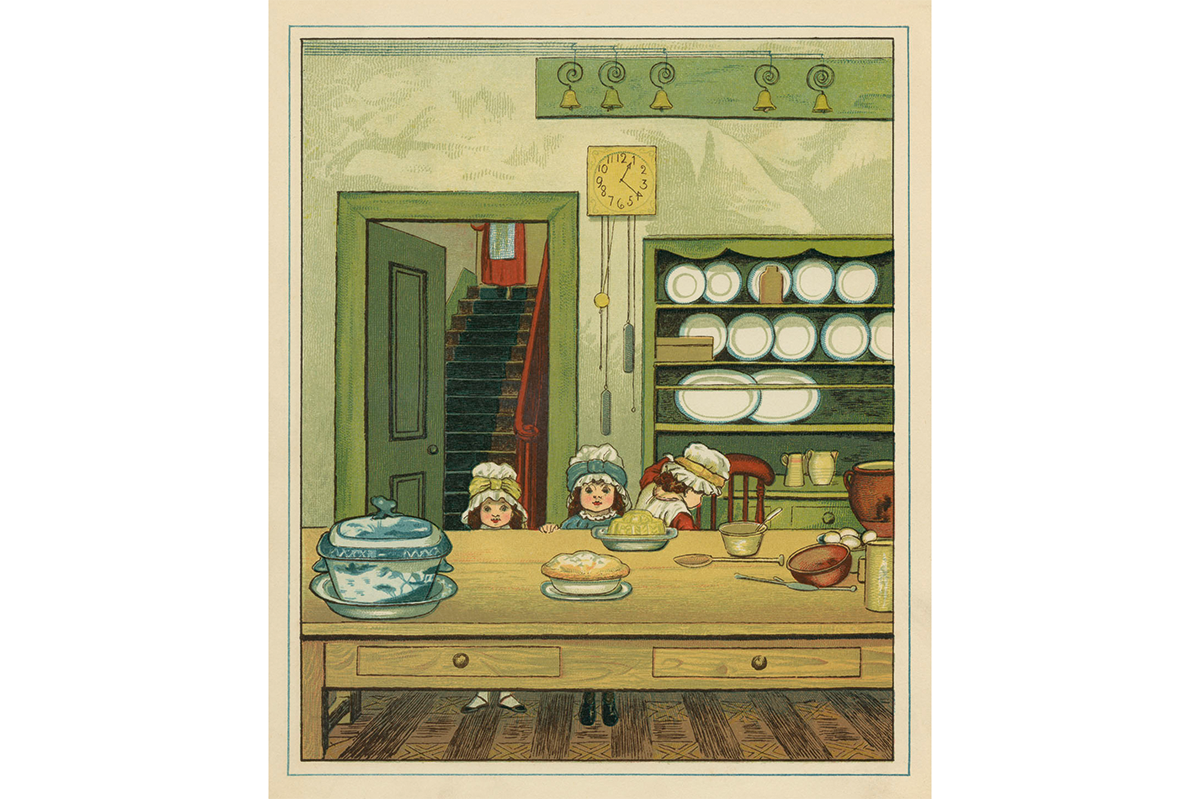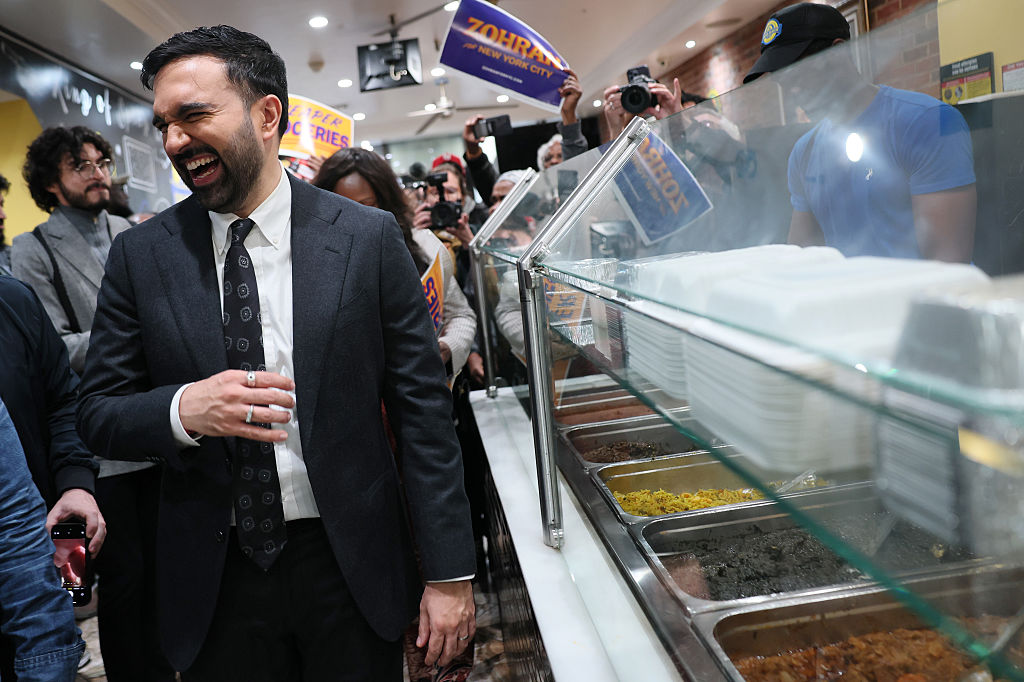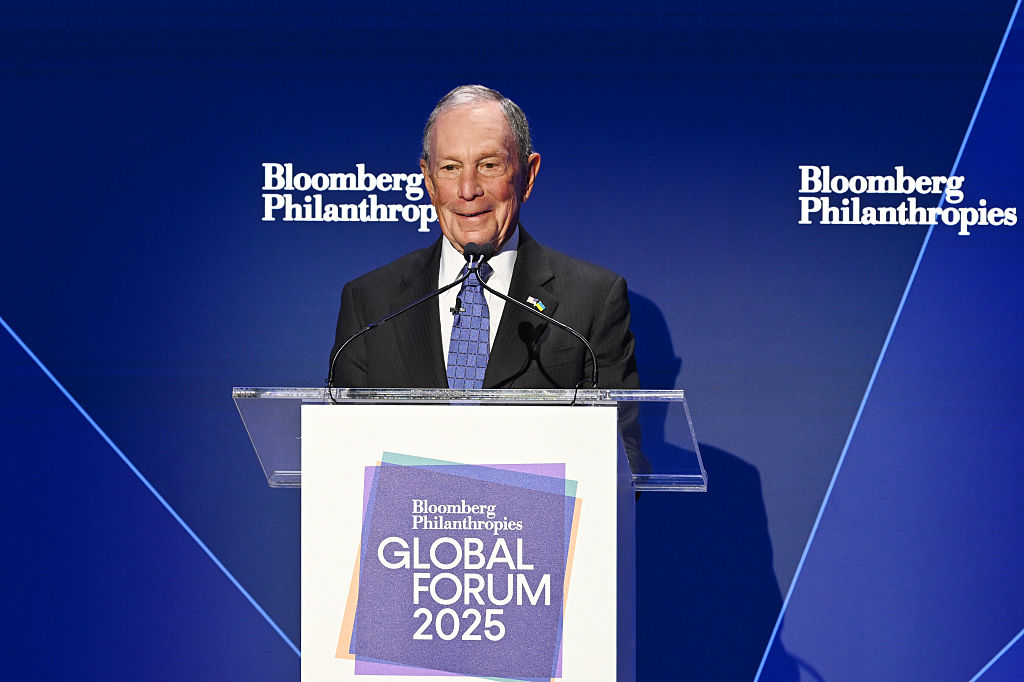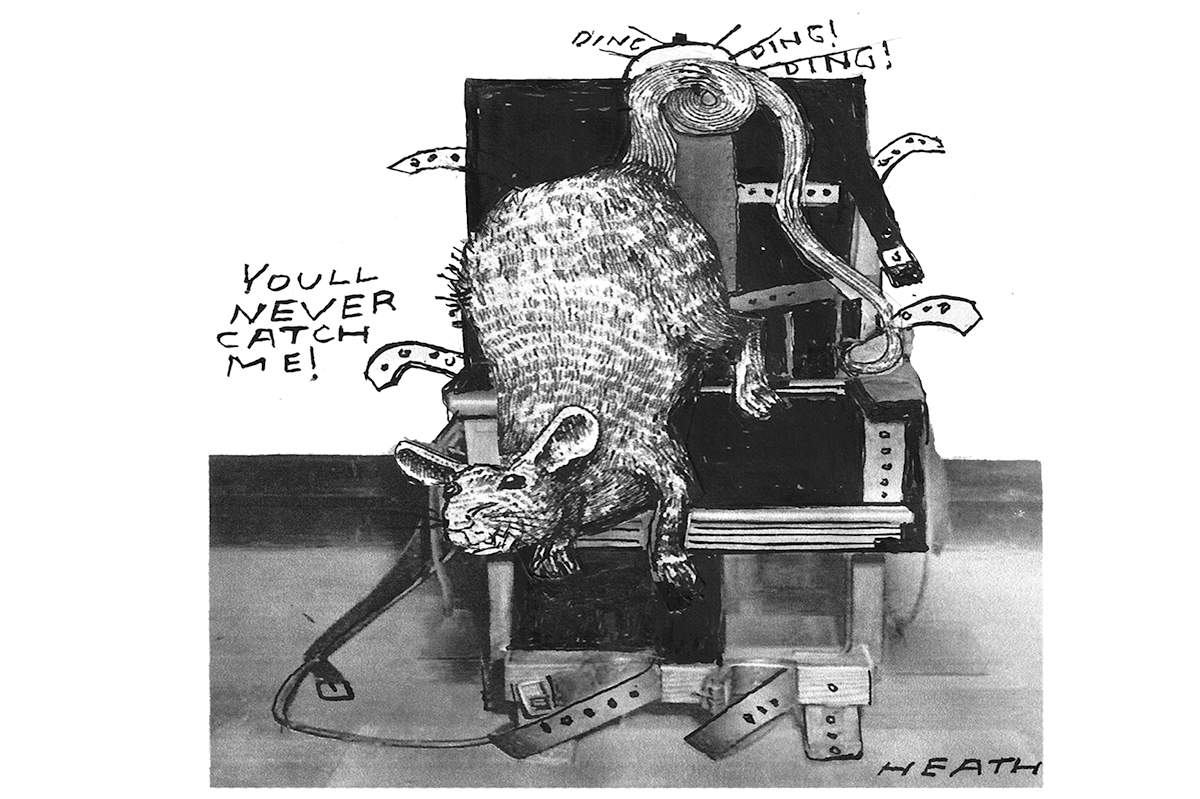Visiting New York for my first black-tie dinner since the onset of the pandemic — a benefit for PEN America, the writers’ organization dedicated to free expression and the promotion of literature — I open my suitcase to discover I am sans black tie. I hit the streets, slaloming through crowds of unflappable Manhattanites who have surely witnessed stranger sights than a frazzled man in a mulberry tuxedo, desperately searching for a cravat. To my shock, Neiman Marcus is out of bowties. I purchase a black necktie. On my way out the door, another customer comes in. “Where are your bowties?” he asks aloud. “You won’t find any here,” I volunteer. Upon ascertaining that we’re going to the same event, my newfound fellow citizen in the Republic of Letters tells me that the staff at a nearby store has informed him of a city-wide bowtie deficit.
Meanwhile, I have a new problem: my tuxedo shirt collar is too narrow for the necktie I’ve purchased. I sprint to Hugo Boss in Columbus Circle, but before I can ask the pair of bemused salesmen for a white dress shirt, they explain that disruptions to the global supply chain have resulted in a scarcity of dress clothes. Better than gas lines and food shortages, I think, grabbing a shirt a size too small. Mere weeks after the notoriously extravagant display of kitschy costumery at the Met Gala, America is facing a bona fide fashion emergency.
Arriving at the American Museum of Natural History, I present my vaccination card and negative Covid test result. Vaccine mandates have introduced yet another divide into a society hardly lacking for them. Surveying my fellow partygoers as they mingle around a giant dinosaur skeleton, I notice one more: between those who require no introduction and those who do. From the latter category, I nervously approach an esteemed member of the former: Robert Caro, whose Pulitzer Prize-winning, multivolume biography of Lyndon Johnson qualifies him as the American Gibbon. Awestruck, I mumble a verbal mishmash that attempts to convey what my forthcoming history of gay Washington will reveal about a close Johnson aide. Caro listens to the half-literate party crasher in the ill-fitting shirt until the dinner bell rings.
In 2015, PEN performed admirably when it granted its Freedom of Expression Courage award to Charlie Hebdo, defying protests from many of its own members in the process. Today, as a wave of censoriousness sweeps America, I’m not sure PEN would hold the line as it valiantly did six years ago. A major theme of the evening is the danger posed by “misinformation,” which is fast becoming for the left what “fake news” is for the right: a term useful for shutting down debate. One of the biggest applause lines arrives when a speaker asserts that “the deliberate sowing of dangerous falsehoods is not within the purview of free speech,” a dubious contention rejected by the Supreme Court. Though most of my fellow PEN members would be loath to admit it, threats to free expression are as likely to come from our august ranks — right-thinking editors and publishers willing to sack a writer or pulp a book to satiate the whims of a Twitter mob — as from the great unwashed.
“Social identities, ladies and gentlemen, are not protected but betrayed when we turn them into silos with sentries, declares Literary Service Award recipient Henry Louis Gates Jr., tacitly repudiating those who decry as “cultural appropriation” the borrowing and blending upon which America’s singular genius for creativity has always thrived. His words are especially poignant as I have just watched Moonstruck, a romantic comedy released nearly thirty-five years ago. Depicting the amorous entanglements of an Italian-American family, it was written by an Irish American, directed by a Jewish American and starred an Armenian-Cherokee American (Cher, née Cherilyn Sarkisian). Could such a melting pot of a film get made today? Turning to the program, I am startled to see, in the alphabetical list of sponsors, “James Kirchick Mattel.” The bullet point that should separate my surname from the children’s toy manufacturer has apparently vanished at the printer. Worried that I’ll be mistaken for an heir to the Barbie fortune, I consider the benefits of no longer needing an introduction. Pretending to be a trinket tycoon, alas, seems beyond my Ken.
The Oslo Freedom Forum, an annual gathering of human rights activists, convened in Miami this year due to the pandemic. One of the speakers, an Iraqi political satirist named Ahmed Albasheer, has a necessarily morbid sense of humor, exemplified by the story he tells about his father’s reaction to the news that a militia had kidnapped his son. “Kill him,” Albasheer deadpans in imitation of his parsimonious pa. “I won’t pay a penny.”
In passing, Albasheer criticizes as “a disaster” the policy of the postwar occupation authority that “allocated government positions based on identity and not merit.” His words send a chill. Describing an initiative that helped foment a brutal sectarian civil war in a benighted land thousands of miles away, he could have been speaking about practically any major institution in the United States.
James Kirchick’s Secret City: The Hidden History of Gay Washington will be published by Henry Holt next year. This article was originally published in The Spectator’s December 2021 World edition.



